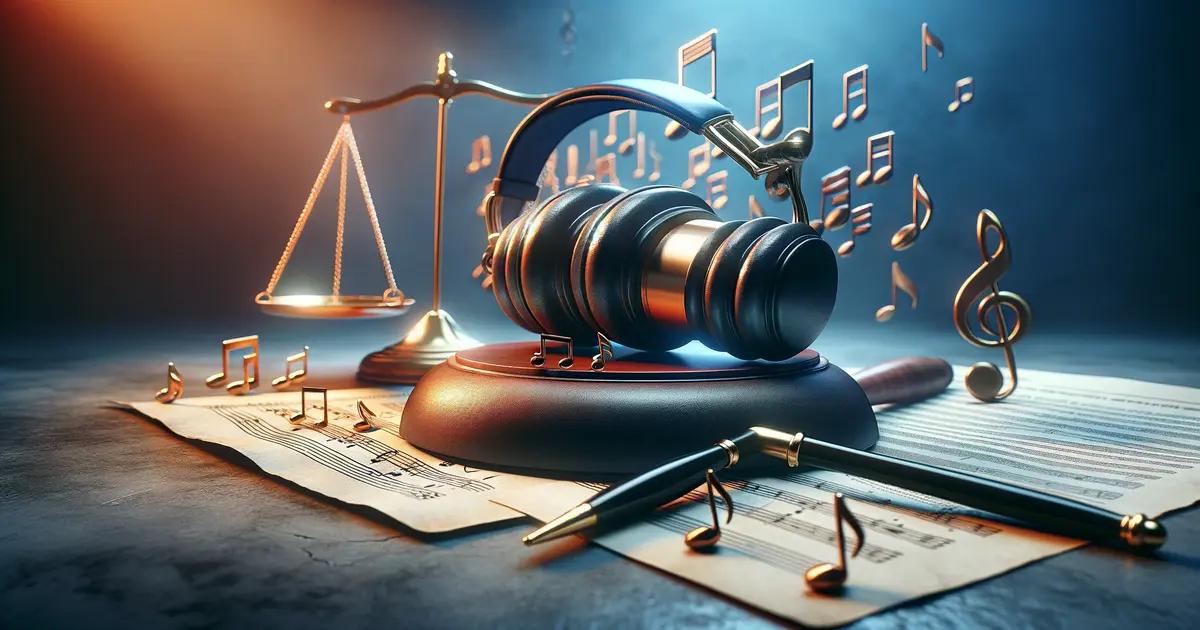How Does Music Copyright Work? Uncover Secrets!
In today's digital era, where music is more accessible than ever, understanding the nuances of music copyright can seem daunting. Yet, it's crucial for artists, producers, and music enthusiasts alike. This article aims to demystify the concept of music copyright, offering a clear, explanation tailored for everyone in the music industry.
📌 Viberate Analytics: Professional music analytics suite at an unbeatable price: $19.90/mo. Charts, talent discovery tools, plus Spotify, TikTok, and other channel-specific analytics of every artist out there.
What is Music Copyright?
At its core, music copyright refers to a set of exclusive rights granted to the creator of an original musical work. These rights are protected under the law, allowing the creator to control the use of their music. This means they can decide who can reproduce, perform, distribute, and adapt their work. Essentially, it gives artists the power to protect their creative investments.
The History and Evolution of Music Copyright
The concept of copyright in music has evolved significantly over time. It originated in the 18th century, primarily as a means to protect composers and publishers from unauthorized reproductions of their sheet music. With the advent of recording technology, copyright laws expanded to cover not just the written music but also the recordings themselves.
Understanding Copyright Ownership
Ownership of copyright in a music piece is initially with the composer or the songwriter. In case of a collaborative work, all contributors hold a share of the copyright. However, copyright ownership can be transferred or assigned, often seen in instances where artists sign with music labels.
The Role of Copyright in the Music Industry
Copyright plays a pivotal role in the music industry. It ensures that creators are fairly compensated for their work when it is used commercially. This is crucial in an age where music streaming and digital downloads dominate. Copyright provides a legal framework that helps manage royalties, licensing agreements, and other financial aspects related to the use of music.
Copyright Duration
In most countries, music copyright lasts for the lifetime of the creator plus an additional 70 years after their death. This duration can vary slightly depending on the country's laws. This extended period of protection ensures that the creator's estate can continue to benefit from the work posthumously.
Types of Music Copyrights
There are two main types of music copyrights:
Copyright in the Composition: This belongs to the composer or songwriter and covers the melody, lyrics, and arrangement of the song.
Copyright in the Sound Recording: Often owned by the record label, this covers the actual recorded performance of the song.
How Does Copyright Protection Work?
In many countries, copyright protection is automatic from the moment of creation, provided the work is original and fixed in a tangible medium. There is no requirement for formal registration, though it can provide additional legal benefits.
Mechanical and Performance Rights
These are crucial aspects of music copyright. Mechanical rights refer to the right to reproduce a song, like in CDs or digital downloads. Performance rights, on the other hand, involve the right to perform the music publicly, including on radio, in clubs, or online streaming services.
The Digital Age and Copyright
The rise of the internet and digital platforms has transformed how music is consumed and monetized. It has also posed new challenges in copyright enforcement. Streaming services, for instance, need to secure licenses for the vast libraries of music they offer.
Dealing with Copyright Infringement
Copyright infringement in music can range from unauthorized use of a song to sampling without permission. Artists and copyright owners can enforce their rights through cease and desist letters, legal settlements, or court actions.
Viberate's Role in the Music Copyright Landscape
Viberate, a comprehensive music analytics platform, plays a significant role in the contemporary music industry. By offering detailed analytics on artists, venues, events, and music networks, Viberate empowers artists and industry professionals with data-driven insights. This helps in making informed decisions about marketing, touring, and overall career development. However, it's important to note that Viberate does not directly deal with copyright issues but provides valuable data that can inform decisions related to it.
Conclusion
Understanding how music copyright works is essential for anyone involved in the music industry. It protects the rights of creators and ensures they are fairly compensated for their work. In a rapidly evolving digital landscape, staying informed and vigilant about copyright laws is more important than ever. Viberate stands as a valuable ally in this journey, offering insights and data to navigate the complex music industry.

Premium music analytics, unbeatable price: $19.90/month
11M+ artists, 100M+ songs, 19M+ playlists, 6K+ festivals and 100K+ labels on one platform, built for industry professionals.




